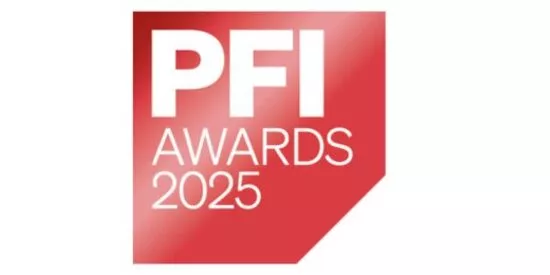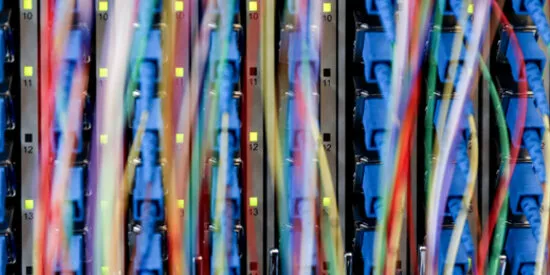
Smart Meters: towards optimised energy management
Globally, the need to modernise water and energy distribution networks is becoming increasingly urgent, in order to improve reliability, reduce outages, and integrate renewable energy sources. Smart meters, devices that enable real-time measurement of water or energy consumption, offer a solution for better resource management and are recognised as a key driver of the energy transition.
By our experts Laurent Chabot, Co-Head of Infrastructure Finance, Paris and Aurélien Schwob, Co-Head of Infrastructure and Telecom, Media, Technology Finance for Asia-Pacific, Societe Generale.
Measure better, manage better
A smart meter is a digital device that measures electricity, gas, water, or heat consumption in real time, with detailed and accurate readings, and transmits this data to the end user, the housing association or landlord, the utility provider, the grid and/or the regulator. Communication can be bidirectional - between the customer and the provider. These devices are revolutionising how energy is measured and managed.
For energy providers, smart meters represent a major step forward in maintaining and modernising infrastructure. They enable better forecasting of peak loads and faster fault detection, improving supply stability and security while reducing operating costs, as well as proposing tailormade commercial offers to their customers. For consumers, businesses and public sector entities, this detailed energy management becomes a powerful tool for process optimisation and cost reduction, and promotes behavioural changes that can lead to reductions in energy use. In France, a study by ADEME(1) measured a 17% average reduction in heating energy consumption following the deployment of individual heat submeters, on a sample of housing units.
Contributing to a sustainable energy future
One of the key benefits of smart meters lies in their contribution to the energy transition. By enabling short- and long-term forecasting of production and consumption, they facilitate better integration of renewable energy sources, making the most of their intermittent nature.
The outlook for smart metering systems is promising, especially as technology advances and electric vehicles and solar rooftop penetration increase. With the growing integration of artificial intelligence, 5G, and ICT innovations, energy management is becoming more an more proactive and predictive. Enhanced data transmission and consumption pattern analysis could eventually automate the implementation of energy-saving measures. Smart meters are at the heart of these developments and, by extension, at the core of smart grids, smart cities, and smart homes. They play a key role in building a more sustainable energy system.
A global, dynamic, and promising market
In a global context marked by population growth, rapid urbanisation, rising energy demand and electrification, the expansion of renewables, and digital transformation, smart energy networks and related technologies are poised to become a key growth sector.
The global smart grid market was valued at nearly USD 66 billion in 2024 and is projected to exceed USD 180 billion by 2034(2). In the Asia-Pacific region, smart grid growth is driven by population expansion and urbanisation. China is rolling out initiatives, India has established a roadmap, and Japan’s post-Fukushima reforms are aligned with this trend. In 2024, the region accounted for 25.5% of global smart grid deployments(3).
In Europe, policies and incentives (such as the European Green Deal), decarbonisation targets, and strong government support are acting as catalysts for investment in smart transmission and metering infrastructure. With a high share of renewables, Germany hosts the largest smart grid in the region(4).
The Middle East is also advancing smart grid development, with Gulf Cooperation Council utilities financing smart city projects.
In North America, the market share is growing steadily. As of 2024, the region represented nearly 25% of the global market, a figure expected to rise over the next decade due to the need for operational energy management and infrastructure modernisation(4). The U.S. Smart Grid Investment Grant (SGIG) program is notably encouraging large-scale smart grid deployment. The sector is thus expanding dynamically worldwide and attracting significant investment.
Supporting the deployment of smart metering infrastructure
As part of its commitment to the energy transition, Societe Generale has recently supported several major smart metering initiatives. In Europe, Societe Generale supported Ocea Smart Building, a French leader in water and heating consumption management. The company sought financing to support the deployment of its individual metering network, in response to regulations requiring the individualisation of heat and water consumption in collective housing in France. The company is also renewing its asset base, transitioning to remote-reading devices with a lighter maintenance and operational footprint. Societe Generale acted as Mandated Lead Arranger and Sustainability Advisor on this €425 million platform financing, structured as a sustainability-linked loan.
In Asia-Pacific, the Bank supported two major players in Australia and New Zealand: Bluecurrent and Intellihub. Societe Generale acted as Mandated Lead Arranger, Bookrunner, and Hedge Provider in Bluecurrent’s NZD 2.737 billion dual-currency acquisition refinancing. The transaction, certified by the Climate Bonds Initiative (CBI), aims to refinance existing debt and fund future growth capital expenditures. For Intellihub, Societe Generale acted as Mandated Lead Arranger, Underwriter, Bookrunner, and Hedge Provider in the AUD 3.1 billion upsizing and refinancing of its debt. This transaction, the largest green loan certified by the CBI to date, marks the third debt deal between Societe Generale and Intellihub since 2021. These landmark transactions will help expand smart metering coverage across Australia and New Zealand.
These financings reflect Societe Generale’s dedication to actively supporting the development of smart metering infrastructure worldwide. They highlight our sector leadership, deep expertise, and ability to deliver tailored financing solutions in a rapidly evolving market.
(1) ADEME – Individualisation des frais de chauffage dans les logements collectifs, 27 jul. 2019
(2)Smart Grid Market Size, Statistics Report 2025-2034
(3) Smart Meters (AMI) Market Size, Report, Share & Growth Trends 2030
(4)Smart Grid Market Size, Statistics Report 2025-2034




